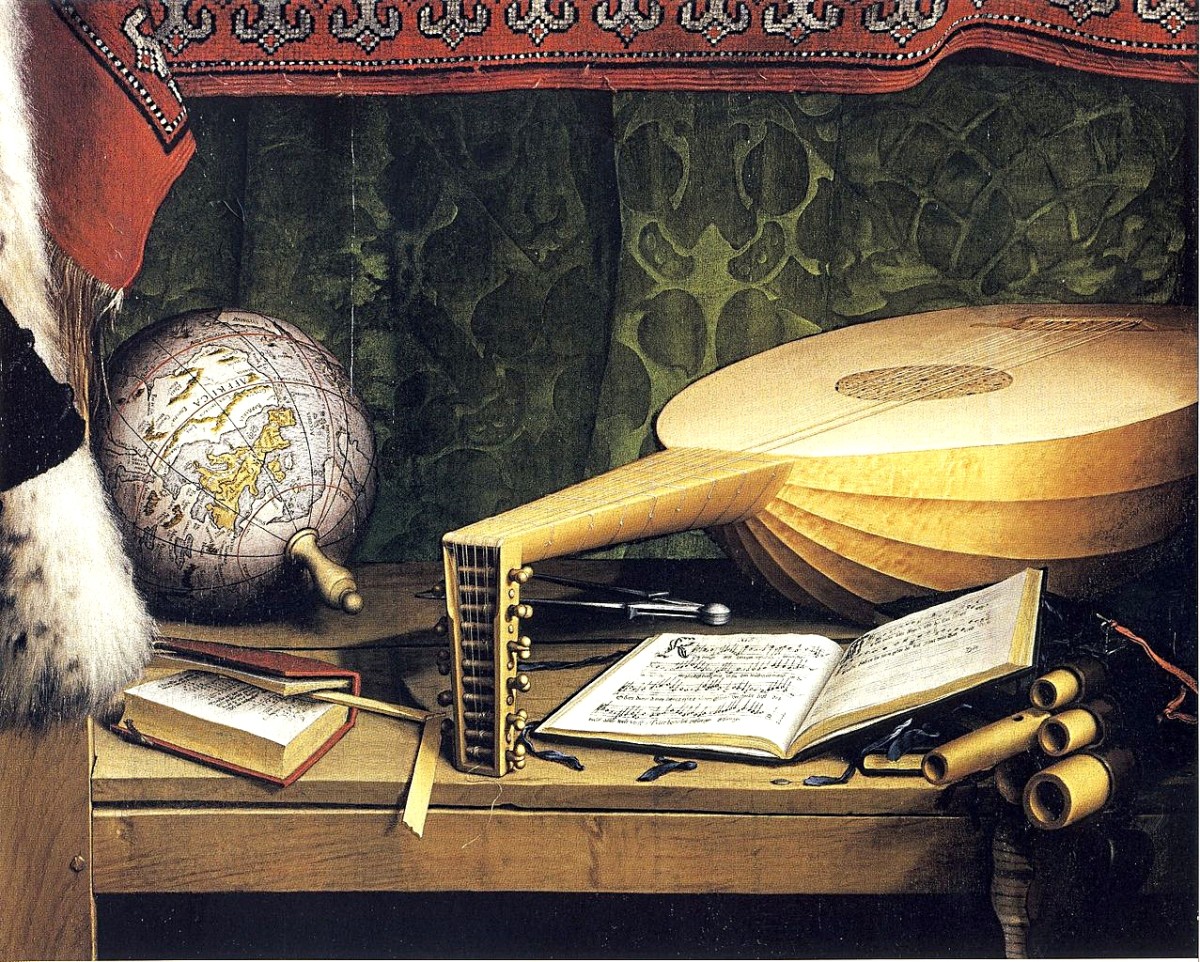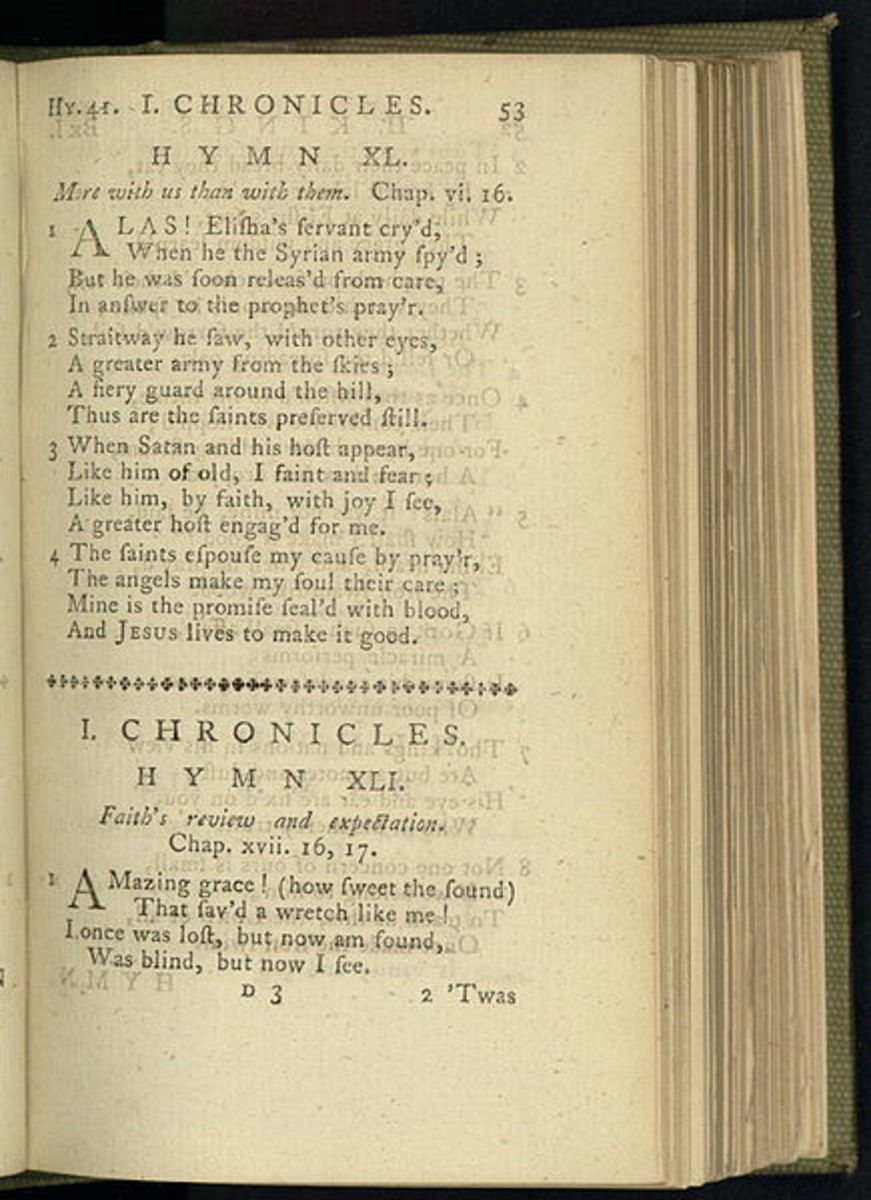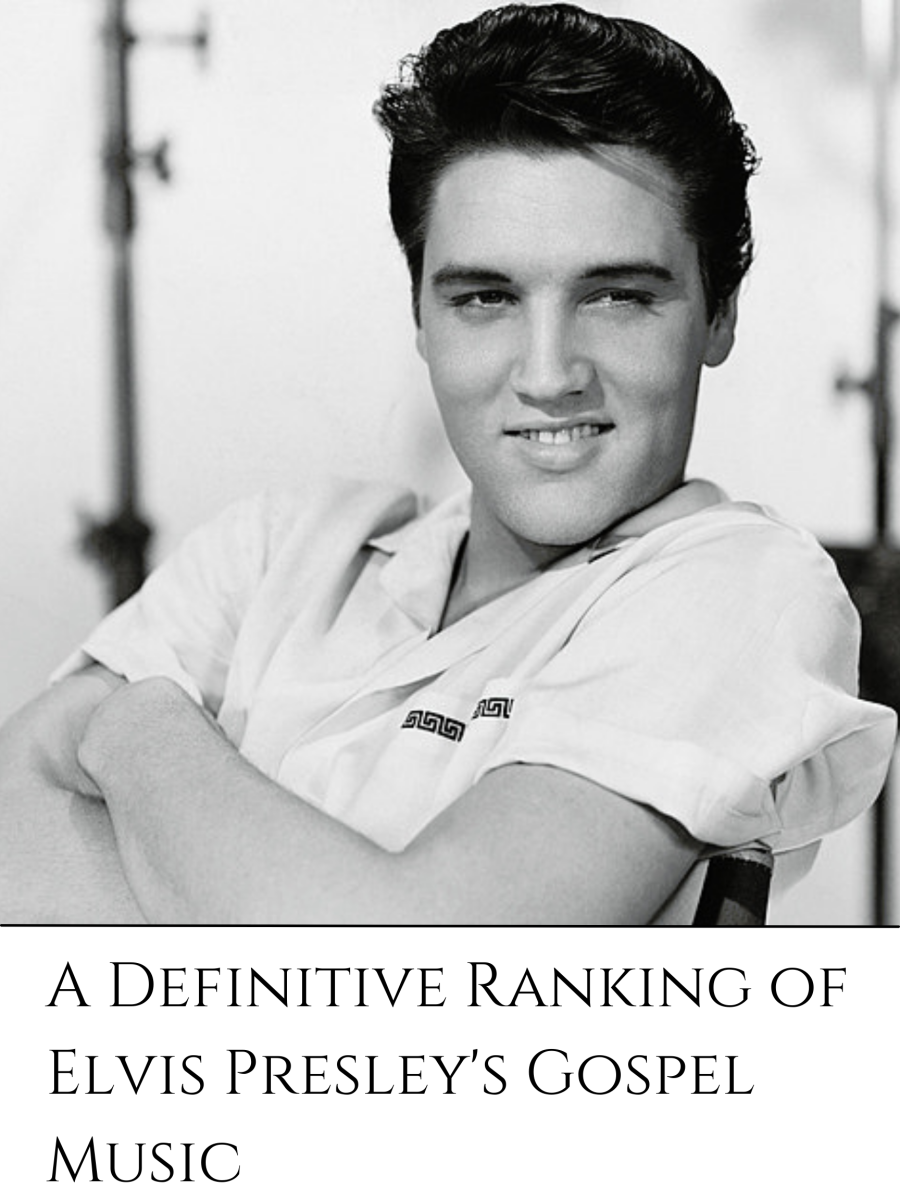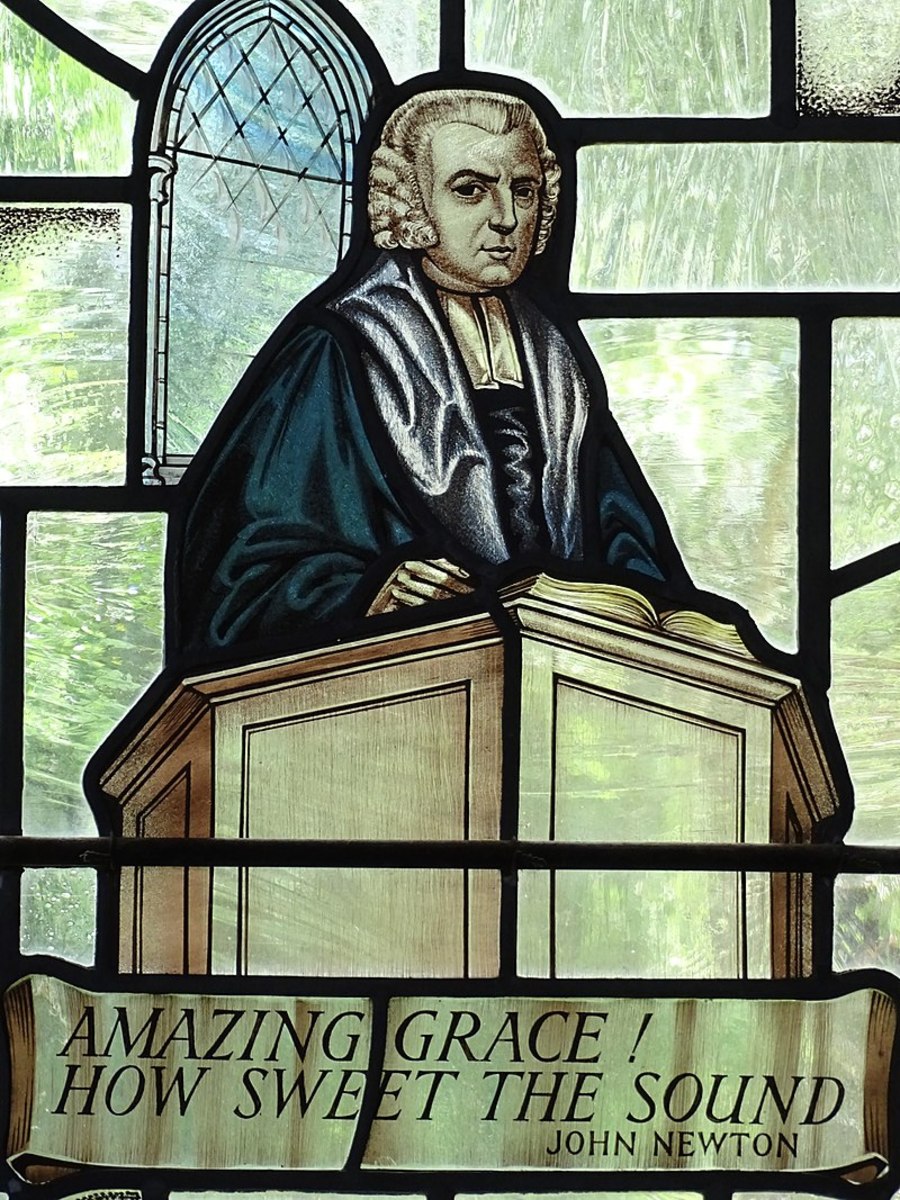Great Hymns of the Faith
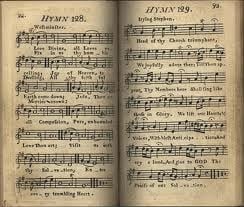
Why I'm making this page about Great hymns of the faith
Why am I'm making this page about Great hymns of the faith, when my favorite genre is folk? I'm making this page on "Great hymns of the faith" because there is much to be said for the old hymns of the church and, as someone said, for the true believer in Jesus, when you're down and in any time of trouble, these great hymns can be a source of comfort and consolation as no other music can. The words are both theological and uplifting. And the music fits the words perfectly. The writers must have had a degree of inspiration. And, after all some ot them are based on folk tunes and some have been sung and played by folk artists. I list here 6 of my favorites, with words and history, and I put several versions of each one in the YouTube and iTunes modules, so you can take your choice.
1. Amazing Grace (words by John Newton to an African song):
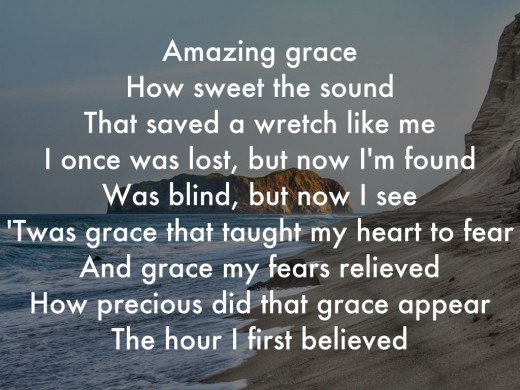
(Verse 3:) Thro' many dangers, toils and snares,
I have already come;
'Tis grace hath bro't me safe thus far,
And grace will lead me home.
(Verse 4) When we've been there ten thousand years
Bright shinning as the sun
We've no less days To sing God's praise'
Than when we've first begun.
....
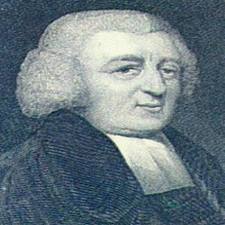
The writing of "Amazing Grace":
[Info gleaned from the below listed website:] in Olney, England In a small cemetery of a churchyard , is a granite marker with the following inscription: "John Newton, clerk, once an infidel and Libertine, a servant of slavers in Africa, was, by the rich mercy of our Lord and Savior Jesus Christ, preserved, restored, pardoned, and appointed to preach the Faith he had long labored to destroy." This inscription was written by Newton himself before his death and accurately describes his unusual...life.
.Having served on several ships and worked along the African coast collecting slaves to sale to visiting slave traders, he eventually became captain of his own slave ship. While returning to England from Africa on March 10, 1748, Newton's ship met with a violent storm and it appeared that all would be lost. Newton began reading "Imitation of Christ." by Thomas A Kempis. The Holy Spirit used the message of the book and the frightening experience at sea to plant the seeds that would eventually lead to Newton's acceptance of Jesus Christ as his personal Savior. Having heard the melody of an African song which seem to fit wonderfully, Newton wrote the words to "Amazing Grace" to the tune. For more, check out the website listed below.
Question: Have you received the gift of salvation through God's amazing grace? Please answer in the poll module below.
For More, check out this website:
- AMAZING GRACE and Grace Greater than our Sin
Read more in detail about John Newton and the writing of this great hymn.
OR check out this history told Whitley Pipps:
Question: Have you received the gift of salvation through God's amazing grace? - Please answer the question by clicking on one of the choices below. If your ans
Have you recieved the gift of salvation through God's Amazing grace?
Listen to this beautiful version of this great song:
Get many versions of this great song on 1 CD:
The album listed below is amazing. There are fourteen (14) different versions of this great song, from 14 different singers or groups, including one from an African group and one from a pipe band. It's a great collection, showing a variety of musical styles or renditions applied to one song.
2. How Great Thou Art (words by Carl Gustav Boberg to a Sweedish folk song) :

(Chorus:)
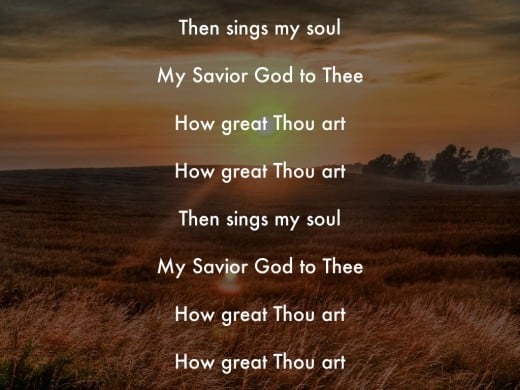
(Verse 3:) (My favorite verse:)
And when I think
That God, His son not sparing
Sent Him to die, I scare can take it in,
That on the cross, My burdon gladly bearing,
He bled and died to take away my sin
(Chorus)
(Verse 4:) When Christ shall come with shout of acclimation
And take me home, what joy shall fill my heart
Then I shall bow in humble adoration
And there proclaim "My God, how great thou art!"
(Chorus)
..........
Carl Gustav Boberg
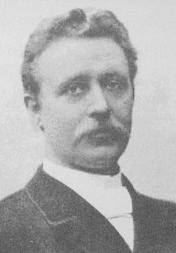
The writing of "How Great Thou Art"
[info. gleaned from Wikipedia:] This hymn is based on a Swedish poem written in Sweden in 1885 by Carl Gustav Boberg (1859-1940) . The melody is a Swedish folk song. British missionary Stuart K. Hine translated it to English and also added two original verses of his own. It was popularized during the Billy Graham crusades by George Beverly Shea and Cliff Barrows . BBC's Songs of Praise voted it the U. K.'s favorite hymn and, in 200, a survey by Today's Christian magazine ranked it second (after "Amazing Grace") on a list of the favorite hymns of all time.
The inspiration for the poem came when Boberg was walking home from church near Kronobäck, Swede and listening to church bells. A sudden awe-inspiring storm gripped his attention. Then just as suddenly, it subsided to a peaceful calm. When Boberg arrived home, he opened the window and saw the bay of Mönsterås like a mirror before him. From the woods on the other side of the bay, he heard the song of a thrush. The church bells were chiming in the quiet evening. This series of sights, sounds, and experiences inspired the writing of the poem.
In 1888, the poem became matched to an old Swedish folk tune and sung for the first time in public in a church in the Swedish province of VÃrmland. In the 1890 Sions Harpan, eight verses appeared with the music . For more, check out the Wikipedia article
Listen to Elvis sing this great song backed up by the Stamps:
3.Great is Thy Faitfullness (based on Lamentations 3:22-23)
Words by Thomas O. Chisholm; Music by William M. Runyan
(Verse 1:) Great is thy faithfulness, O God, My Father
There is no shadow of turning with Thee.
Thou changest not, Thy compassions they fail not;
As thou hast been, Thou forever wilt be.
(chorus):
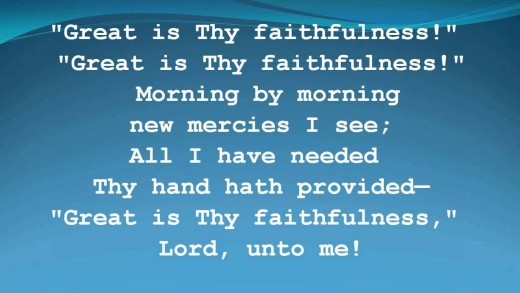
Verse 3:
(Verse 3:) Pardon for sin and a peace that endureth,
Thine own dear presence to cheer and to guide;
Strength for today and bright hope for tomorrow,
Blessings all mine, with ten thousand beside!
(Chorus)
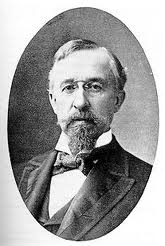
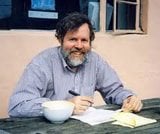
The writing of "Great Is Thy Faithfulness":
(Info. gleaned from ShareFaith.com and Lectionary.org (the 2 links below)
Thomas Obadiah Chisolm (1866-1960) had a difficult adult life. His health was so fragile that there were periods...when he was confined to bed, unable to work. ...After coming to Christ at age 27, [he] found great comfort in the Scriptures, and in the fact that God was faithful to be his strength in time of illness and provide his needs. Always interested in poetry, Chisholm wrote hundreds of poems during his lifetime. One of his favorite scriptures was Lamentations 3:22-23 “It is of the Lord's mercies that we are not consumed, because His compassions fail not. They are new every morning: great is Thy faithfulness.” He decided to write a poems based on it.
While away.. on a missions trip, Thomas often wrote to one of his good friends, William Runyan, a relatively unknown musician. Several poems were exchanged in these letters. Runyan found one of Williams' poems so moving that he decided to compose a musical score to accompany the lyrics. The result was "Great is Thy Faithfulness" which was published in 1923.
Listen to this beautiful hymn:
4. It Is Well With My Soul (Words by Horatio G. Spafford; Music by Philip P. Bliss):
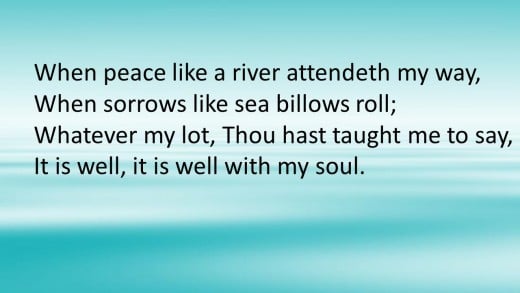
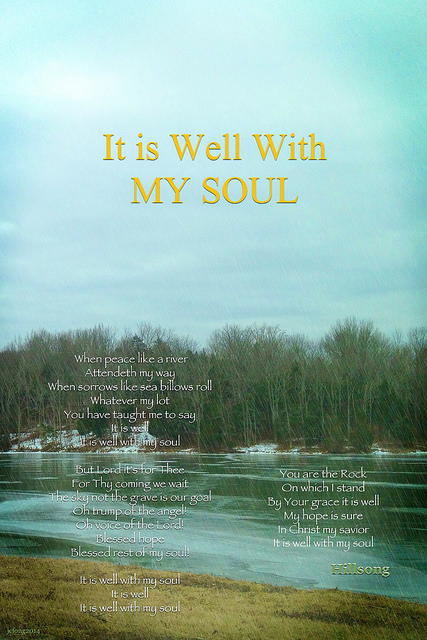
(Chorus:) It is well, with my soul,
It is well, It is well, with my soul.
(Verse 2:) Though Satan should buffet, Tho' trials should come,
Let this blest assurance control;
That Christ has regarded my helpless estate,
And hath shed His own blood for my soul.
(Chorus)
(Verse 3) (below)
(Chorus)
....
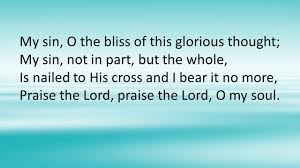
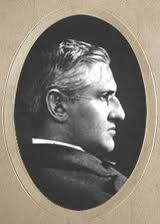
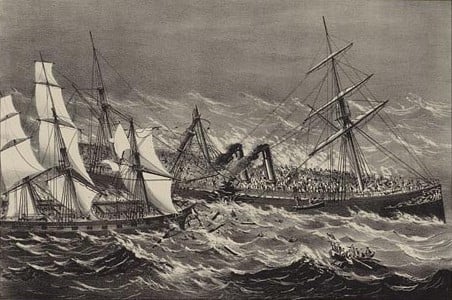
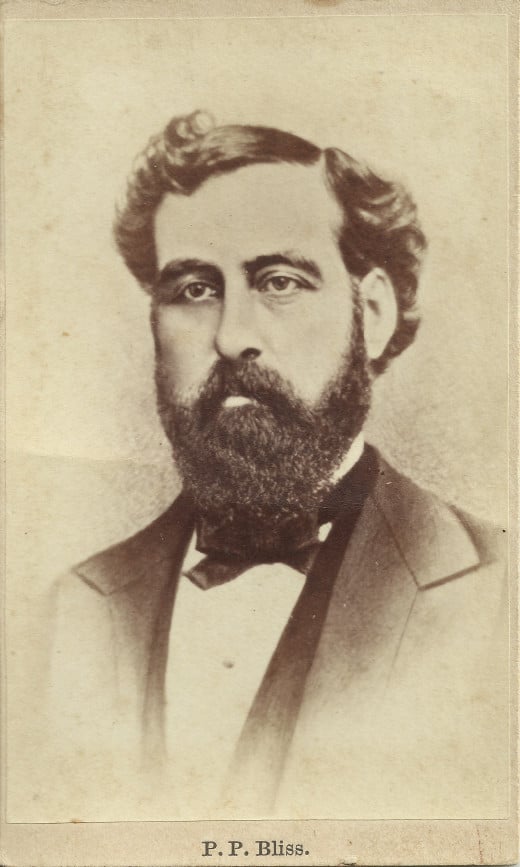
The writing of "It Is Well With MySoul:
This hymn was written after a series of major traumatic events in the life of wealthy Chicago lawyer and Bible scholar, Horatio G. Spafford. The first was the death of his only son, age 4, from scarlet fever in 1871. Shortly after this, came the great Chicago fire of October 1871. Spafford had invested heavily in real estate along the shores of Lake Michigan and his holdings were wiped out. Feeling a need for a vacation for his family and desiring to join his friends Moody and Sankey in an evangelistic campaign in Great Britain, Spafford planned a European trip for his family in 1873. Due to a last minute business development, he remained in Chicago and sent his wife and four daughters ahead on the S. S. Ville du Havere. His plan was to join them a few days later. While crossing the Atlantic, their ship was struck by another ship and sank in a matter of minutes. All four of Spafford's daughters died in the tragic accident. Spafford's wife Anna survived and sent him the now famous telegram, "Saved alone." Several weeks later, as Spafford's own ship passed near the spot where his daughters died, the Holy Spirit inspired him to write these beautiful words.
Philip P. Bliss was so impressed with Spafford's text that he very shortly wrote the music for it.
The hymn tune is named Villa du Havere after the ship on which Spafford's children perished.
Ironically, Bliss himself died in a tragic train wreck shortly after writing this music. He survived the initial impact, but died when he went back into the flames in an unsuccessful attempt to rescue his wife.
For more, GO HERE, OR HERE AND, check out the book in the module below
Listen to this beautiful rendition of this great song:
Get "It Is Well With My Soul" on Mp3
There are a lot of versions of "It Is Well with My Soul," so you have many to choose from. Just look it up on Amazon MP3.
5. A Mighty Fortress Is Our God. Words and music by Martin Luther
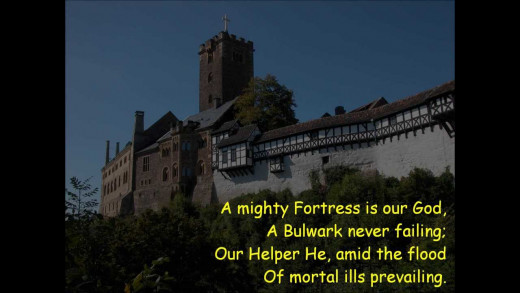
....For still our ancient foe
doth seek to work us woe;
his craft and power are great,
and armed with cruel hate,
on earth is not his equal.
(Verse 2:) Did we in our own strength confide,
our striving would be losing,
were not the right man on our side,
the man of God's own choosing.
Dost ask who that may be?
Christ Jesus, it is he;
Lord Sabaoth, his name,
from age to age the same,
and he must win the battle.
(Verse 3;) And though this world, with devils filled,
should threaten to undo us,
we will not fear, for God hath willed
his truth to triumph through us.
The Prince of Darkness grim,
we tremble not for him;
his rage we can endure,
for lo, his doom is sure;
one little word shall fell him.
(Verse 4:) That word above all earthly powers,
no thanks to them, abideth;
the Spirit and the gifts are ours,
thru him who with us sideth.
Let goods and kindred go,
this mortal life also;
the body they may kill;
God's truth abideth still;
his kingdom is forever.
(It's really one cobtinuous thought. the verses are just there for convience.)
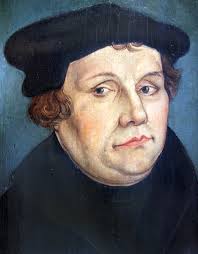
The writing of "A Mighty Fortress Is Our God":
This great hymn was penned by the 16th century reformer Martin Luther, a monk who understood the power of evil: In 1517 he posted 95 theses on the door of Wittenberg's Castle, detailing faults of the Catholic church according to scripture. He then faced years of trials and persecution. He was excommunicated from the Roman church, and he continually faced threats against his life and his freedom.... But he also knew "God is our refuge and strength, a very present help in danger" (Psalm 46:1), and so he wrote "A Mighty Fortress is our God," proclaiming boldly that "the prince of darkness grim, we tremble not for him . . . one little word shall fell him."
For more, read this Wikipedia article.
Listen to this beautiful rendition of this great hymn:
The 4 above and the 1 below are here in this great album:
The great CD listed below has four (4) of the above, namely:How Great Thou Art, Great Is They Faithfulness, It Is Well With My Soul, R, A Mighty Fortress, as well as Come Thou Fountain of Every Blessing, which is the next one on my list below.
Get this great album:
6. "Come Thou Fount" Words by Robert Robinson to an American folk tune:
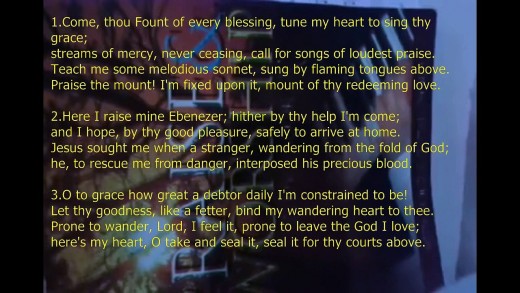
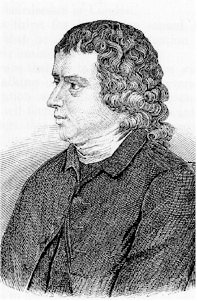
The writing of "Come Thou Fount":
[Info. gleaned from Wikipedia:] Robert Robinson penned the words at age 22 in the year 1757. In the USA, the hymn is usually set to an American folk tune known as Nettleton, composed by printer John Wyeth, or possibly by Asahel Nettleton. In the UK, the hymn is also often set to the tune Normandy by C Bost. For more, including the various versions or the lyrics, Read the Wikipedia article
Listen to this beautiful rendition of this great hymn:
Read more stories behind the great hymns, - as you listen to the music. Check out the great set below or the other 2 like it:
The set listed below is even more amazing than the albums listed above, as it contains not only the hymns themselves, but also the stories of their writing. The stories behind these hymns can be just as moving as the lyrics themselves. In each of the 3 new gift book sets, four renowned Christians present inspirational thoughts and histories of 12 beloved hymns, exploring the biblical framework of each and suggesting how those truths can be applied to our daily lives. *Each beautifully produced book comes with a musical CD of all 12 hymns being performed-some in simple fashion by the authors, and other complemented by full orchestra and choir." Two of the ones detailed above,"A Mighty Fortress" and "It is Well With My Soul." are there along with ten other great hymns you will also lo
As the Amazon review states: "Music has the wonderful ability to speak to our spirits and move us into a deeper worship of God. [This is e]specially [true when it comes to] the great truths of faith that are expressed in hymns. Now some of your most beloved authors share with you the scriptures and stories behind twelve favorite hymns, as well as the daily encouragement and rich spiritual application that you can find in each of them. Through this inspiring work the words that have spoken to your heart in the past will now have even greater meaning each time you sing them. A fully orchestrated CD featuring these glorious hymns is included. Together the book and CD give you a special keepsake and a fresh way to inspire your worship again and again."
"Great Hymns of the Faith" is listed here:
Christ Centered Web - Directory Access By Faith and in Sermons Outlines, Free Pentecostal Bible Studies, Topical Sermons, Podcasts - Free Pentecostal Online Topical Sermons, Christian Bible Studies, Sowing Seeds of faith by Ken Birks.



